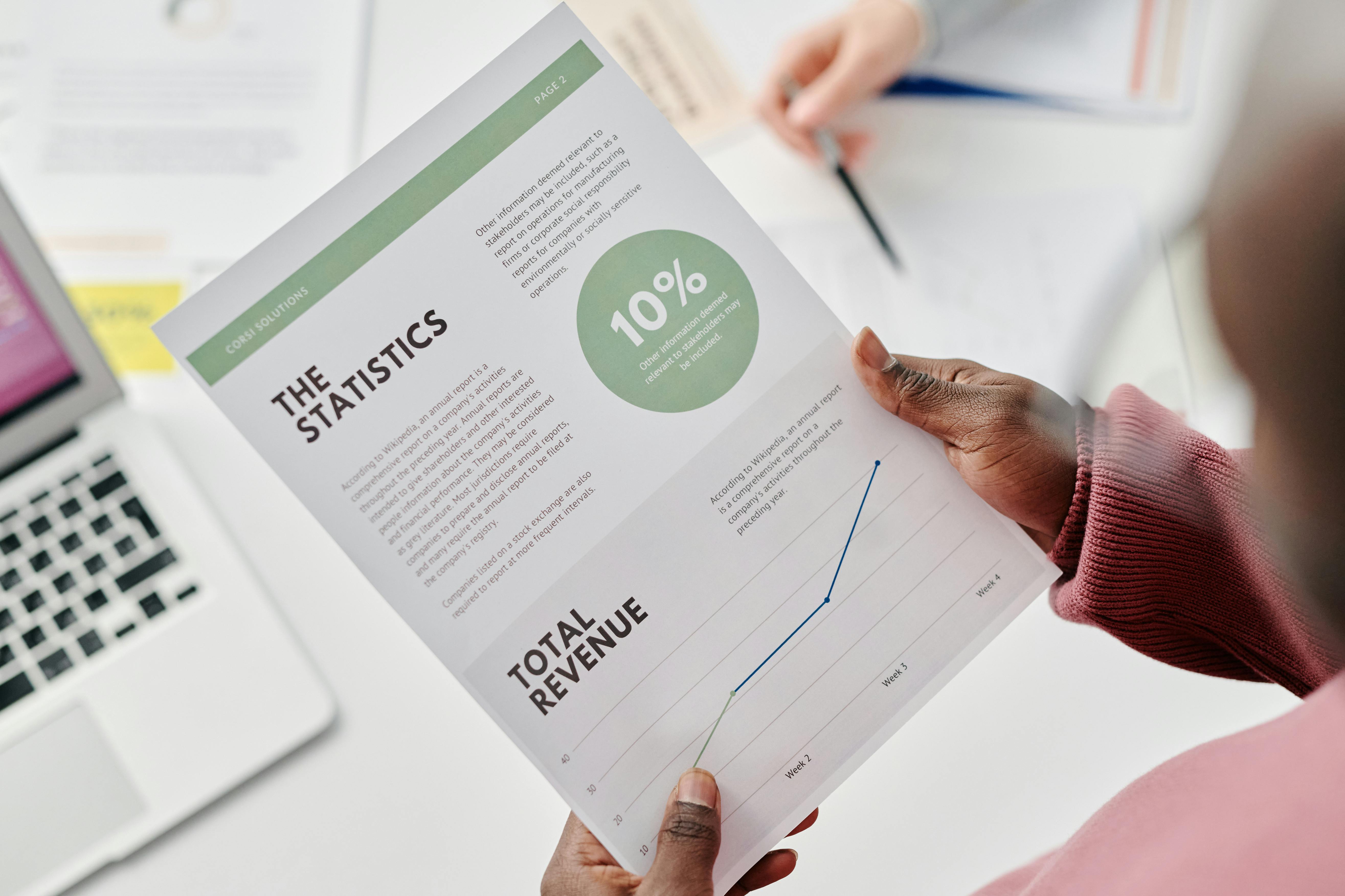Revenue Cycle Management (RCM) explained end to end—front, mid, and back office. Reduce denials, speed cash flow, track KPIs, and leverage AI. Get 2026 guide.

The world of healthcare marketing is a balancing act. You need to reach the right patients, provide value, and grow your practice, all while navigating the industry’s strict compliance and privacy rules. It’s a tall order, but there’s a powerful ally that’s changing the game: artificial intelligence. Using AI in healthcare marketing isn’t about futuristic robots, it’s about using smart technology to work more efficiently, understand your audience better, and deliver a superior patient experience.
From creating content that resonates to ensuring every patient interaction is seamless and compliant, AI offers tools to help. This guide will walk you through the key ways you can start using AI in healthcare marketing, breaking down complex topics into practical AI use cases for patient acquisition and operational efficiency, and rock solid data privacy.
Before you can help patients, they need to be able to find you. AI is revolutionizing how healthcare providers, from health systems to specialty group practices, create and optimize the content that draws patients in.
Feeling stuck staring at a blank page? AI can be an incredible creative partner. It starts with strategy. AI tools can analyze search trends and competitor content to generate detailed outlines and creative briefs for new articles, ensuring your content is structured to meet patient needs from the start. A key skill for marketers is prompt engineering, which is the art of asking the AI the right questions to get the best results.
Once you have a plan, AI content tools can help brainstorm blog topics, draft social media posts, or suggest email subject lines. This technology is already mainstream, with 44% of marketers using AI for content creation tasks. By handling the initial legwork, AI can save content marketers over eight hours per week, freeing up your team to focus on strategy and adding a human touch.
Creating great content is only half the battle, it also needs to rank on search engines like Google. Using AI in healthcare marketing can give you a significant SEO boost. AI powered platforms analyze search trends and competitor content to pinpoint high value keywords. They can also suggest improvements for your headlines and meta descriptions to improve visibility.
The results speak for themselves. AI assisted SEO strategies have been shown to achieve top 10 Google rankings in about half the time compared to traditional methods (around three months versus six). This means patients find you faster. As voice assistants become more popular, voice search optimization is also critical. AI can help you structure your content to answer the direct questions patients are asking their smart speakers.
AI also helps you get more value from your existing multimedia content. Tools for video transcription and analysis can automatically create written transcripts of your videos. This makes them accessible to a wider audience and gives search engines more text to crawl, improving SEO. AI can then summarize these transcripts or repurpose a single webinar into a dozen assets like blog posts, social media updates, and email newsletters. It can also generate metadata and tags, making your content library easier to manage and search.
On social platforms, social media monitoring and sentiment analysis tools use AI to track brand mentions and understand the public’s perception of your practice. This allows you to quickly address patient concerns and identify opportunities to engage with your community.
Great marketing is built on a deep understanding of your audience. AI can analyze vast amounts of data to uncover insights that would be impossible for a human to find, allowing for more precise and effective campaigns.
Who are your ideal patients? AI can help you answer this question with incredible detail. By analyzing website analytics, CRM data, and patient feedback, AI algorithms can identify distinct patient segments. For instance, it might cluster your audience into groups like “tech savvy millennials seeking preventative care” or “seniors managing chronic conditions”. Roughly one third of marketers are already using AI for this kind of customer segmentation. This data driven approach to AI for user research and persona development helps you create semi fictional profiles that guide your entire marketing strategy.
Once you know who your audience is, AI helps you reach them. Enhanced audience targeting uses AI to move beyond basic demographics and focus on behaviors and intent. This leads to more efficient spending, as you’re showing ads to people who are most likely to need your services.
Furthermore, predictive analytics for targeted campaigns can forecast which patients are at risk of missing an appointment or which are most likely to respond to a reengagement campaign. This allows you to be proactive with your outreach. The power of ad performance forecasting also lets you estimate campaign results and optimize your budget before you even launch. About 61% of marketing teams now use AI for these kinds of real time campaign adjustments, such as rebalancing ad spend based on performance.
Staying ahead of the curve is crucial. AI can analyze public health data, search queries, and social media conversations to predict emerging health trends. This could help a clinic anticipate a spike in demand for flu shots or an orthopedic practice to create content around a newly popular fitness activity.
Ultimately, all these capabilities feed into a culture of data driven decision making. AI powered data analysis and visualization tools can automate the heavy lifting of reporting, turning raw numbers into clear, actionable dashboards and recommendations. Instead of relying on gut feelings, you can use evidence to guide your strategy. This approach is proven to work, with brands that deliver personalized experiences seeing a 10 to 15% increase in revenue. This strategic approach also applies to business to business efforts like HCP segmentation and engagement, allowing for highly tailored outreach.
Beyond strategy, using AI in healthcare marketing can take over repetitive, time consuming tasks. This frees up your staff to focus on high value patient interactions across patient access and medical billing teams.
Patients today expect immediate answers. AI powered chatbots and virtual voice agents can handle a huge volume of routine inquiries 24/7, without any wait time. These bots can answer common questions, schedule appointments, assist with prescription refills, and even route calls intelligently as a switchboard for payors, handling over 70% of basic customer queries on average. This is a welcome change for patients, as 68% of consumers prefer brands that use AI for faster service.
Advanced AI voice agents, like those offered by solutions like Prosper AI, can go even further (see how Prosper’s AI voice agents work). They handle patient calls with a human like, conversational tone, and can integrate directly with EHR systems to provide a truly seamless experience. This kind of marketing operation automation drastically reduces staff burnout and ensures every patient call is answered promptly.
A positive user experience (UX) is critical for patient acquisition and retention. AI can significantly improve how patients interact with your website. By implementing AI powered site search, you can help visitors find relevant information, locate specific doctors, or understand complex service lines much faster. Unlike traditional search bars, AI understands natural language and user intent, delivering more accurate results and reducing patient frustration. This leads to a better overall experience and makes it easier for patients to take the next step in their care journey.
To be truly effective, your tools need to talk to each other. Data integration and interoperability are about connecting your various systems (EHR, CRM, marketing platform) into a single, unified view. This eliminates data silos and ensures a consistent patient experience. For example, when systems are integrated, a patient updating their contact information in your portal automatically updates your marketing list.
This connectivity is a core strength of modern AI platforms. A solution like Prosper AI offers native integrations with over 80 EHR and practice management systems, allowing its AI agents to read and write information directly. This ensures that when an AI schedules an appointment, it’s instantly and accurately reflected in the clinic’s own system.
In healthcare, trust is everything. Using AI in healthcare marketing must be done with an unwavering commitment to patient privacy and regulatory compliance.
Any AI tool you use must be compliant with regulations like HIPAA and GDPR. This is non negotiable. For details on data handling and consent, review our privacy policy. A key part of modern compliance is building a first party data strategy. This means focusing on collecting data directly from your patients with their explicit consent, rather than buying data from third party brokers. This approach is more transparent and builds trust.
Effective data strategies include a preference center and consent management system, where patients can easily control what communications they receive. This empowers patients and ensures you are respecting their wishes.
Two core principles of privacy are data minimization and de identification. Minimization means you should only collect the data that is absolutely necessary for a specific, stated purpose. Avoid collecting extra information just in case it might be useful later. De identification is the process of stripping out all personally identifiable information (like names, addresses, and social security numbers) from a dataset. This allows you to analyze trends and gain insights from aggregated data without compromising the privacy of any single individual.
To secure the data you do hold, techniques like data masking and encryption are essential. Encryption scrambles data so it’s unreadable to unauthorized parties, while masking creates a realistic but fake version of data for testing and analysis. These are backed by strong access control and least privilege policies, which ensure that team members can only view the data necessary for their roles. This combination of strategies is key to enabling privacy safe personalization. A critical rule is to avoid inferred health data use. You should not try to guess a person’s health condition based on their browsing behavior.
Successfully integrating AI requires more than just buying software. It requires a thoughtful approach that blends technology with human expertise and strong oversight.
The most effective approach is to combine human and AI insight. AI is brilliant at processing data and automating tasks, but humans provide creativity, empathy, and common sense. Think of AI as an assistant that augments your team’s capabilities, not a replacement for them.
This is why human review and quality assurance of AI output is so important. An AI might draft a blog post, but a human editor should always review it for accuracy, tone, and empathy. AI tools can even assist in this process by checking for grammar, readability, and quality. It’s also vital to continuously test and monitor AI tool performance to ensure it’s delivering accurate results and meeting your goals.
Implementing AI introduces new considerations for risk and governance. It is essential to establish a clear governance framework that outlines how your organization will select, deploy, and monitor AI tools. This should include creating clear policies on data usage, model transparency, and ethical considerations. A designated committee or individual should be responsible for overseeing AI initiatives, ensuring they align with your practice’s values and comply with all legal and regulatory requirements. Managing these risks proactively builds trust with both patients and staff.
Finally, technology is only as good as the people using it. Providing regular compliance training for marketers is essential. Your team needs to understand the rules of the road for HIPAA, data consent, and ethical marketing. When your team is well trained, they can innovate confidently, knowing they are protecting patients and the practice. This foundation of knowledge allows you to leverage powerful tools for using AI in healthcare marketing safely and effectively.
Ready to see how AI voice agents can transform your patient communications while upholding the highest standards of compliance? Get a demo or explore the solutions offered by Prosper AI.
The primary benefits include increased operational efficiency through automation of tasks like appointment scheduling, improved patient experience with 24/7 support and zero hold times, deeper audience insights for more effective campaigns, and the ability to make data driven decisions, all while maintaining strict HIPAA compliance.
AI platforms designed for healthcare incorporate features like data encryption, access controls, and the use of de identified data for analytics. They help enforce compliance by automating processes according to preset rules and providing audit trails, which can reduce the risk of human error associated with handling protected health information (PHI).
No, AI is a tool to augment, not replace, healthcare marketers. AI excels at data analysis and automating repetitive tasks, which frees up human marketers to focus on higher level strategy, creative thinking, and building empathetic, patient centric campaigns. The best results come from combining AI’s power with human insight.
A great starting point is to identify your biggest administrative bottleneck. Often, this is the front desk phone line. Implementing an AI powered virtual assistant or voice agent to handle routine calls like scheduling, Q&A, and reminders can provide immediate relief to staff and a noticeable improvement for patients.
Yes, absolutely. AI can automate appointment reminders through intelligent voice calls or text messages. It can also analyze patient data to predict who is at a higher risk of not showing up, allowing your staff to perform more targeted, personal outreach to those individuals.
AI tools analyze vast amounts of search data to identify relevant keywords, suggest content topics that patients are searching for, and recommend on page optimizations for headlines and structure. Some AI driven SEO strategies have been shown to help websites rank on Google in half the time of traditional methods.
Discover how healthcare teams are transforming patient access with Prosper.

Revenue Cycle Management (RCM) explained end to end—front, mid, and back office. Reduce denials, speed cash flow, track KPIs, and leverage AI. Get 2026 guide.

Learn payer verification best practices to cut denials, speed reimbursement, and boost patient transparency. See steps and 2026-ready workflows you can use.

Learn how AI for Revenue Cycle Management automates prior auths, boosts clean claims, cuts denials, and accelerates cash flow. Get the 2026 guide and roadmap.